I wanted to say a few words about faith. When you write a book it’s hard to know exactly how it’ll be interpreted by readers. You can suggest things in interviews, guide people towards your intentions, but in the end you’re just an author, and we all know authors are dead. Viv Groskop highlighted what she felt was one of the weaknesses of the novel at the end of her review in the Observer: it takes agnosticism as its guiding principle. Everything in the novel, from the existence of God to the nature and perpetrator of the crime that unfolds at the religious retreat, is left open. I wanted, as far as I could, to write into the novel my own feelings about belief, or rather about the doubt that is at the heart of whatever you call my own tentative attempt at faith.
I was a choirboy as a child. I sang in some beautiful churches.
First this one:
Then this one (less pretty, I know):
Then this Gormenghastian monstrosity (until the school to which the chapel belonged chucked me out):
I also sang in the Southern Cathedral Choir, a group that, as the name might suggest, toured the cathedrals of the south.
In short, I spent a lot of time in church as a kid. I listened to some inspiring sermons and some indifferent ones, watched sunlight flooding through stained glass as I sang Ave Verum Corpus or Adam Lay Ybounden, heard massive organs (quiet at the back) roar out toccatas that seemed to pick up my soul and toss it around like a tennis ball. I was the child of more or less atheist parents (dad more, mum less) and yet I was exposed to God more regularly than anyone I was at school with.
Adolescence hits most of us like a rake in the face, but for me the horror of it all was compounded by the corruption of that pure and etherial singing voice into something that sounded like a set of bagpipes being humped by a hyena. Not only was I expelled from the Eden of childhood, I lost access to those quiet, dust-breathing churches. While I was kept on as a tenor for a while, rather in the way 35-year old footballers are given coaching roles by their clubs before the inevitable booze-fuelled breakdown, my voice was out of control: one moment a growl, the next a yelp. I was a freak next to the fresh-faced soprano angels. I quit the choirs and left the church.
I spent my teens and most of my twenties in a state of unthinking agnosticism. The existence of a God seemed possible, if unlikely, but I was too busy having fun to think hard about the deeper meaning of things. This was the era of the big atheist books – The God Delusion, God is Not Great, The End of Faith – which I read with great interest. I found, however, that the effect of these hyper-rational polemics against the evils of belief had a rather unsettling effect on me. I began to think back to my days as a choirboy, to the safety and quiet reflection I’d enjoyed in the churches of my youth. I didn’t recognise my own experience of religion in the loony literalists that Dawkins et al held in their fierce gaze. It felt wrong that the sensitive, questioning priests I’d encountered should be pilloried alongside their snake-wielding, hellfire-invoking brethren.
I started to read other books, books that seemed to suggest that it was possible to believe without subscribing to the nastiness and hypocrisy that underlies so many of the old religions (or rather the churches that promote them). I found that there were those, like me, for whom belief started not with a mad leap into blind faith, but with uncertainty, with a recognition that doubt is a reasonable, indeed necessary, part of any attempt to contemplate a higher power. I read Karen Armstrong and Richard Holloway and found their wise, searching voices expressed exactly what I was reaching towards. Faith doesn’t have to be exclusive, it doesn’t have to be judgmental, it doesn’t have to be certain.
The Revelations is a novel about four young people who are looking for a way to believe authentically in an alienating and disenchanted world. They are bright, confused, questioning, and they feel that the God-shaped hole is harder to fill now than ever before. This is not, as one reviewer suggested, a book that frowns on all forms of religion, but intends instead to show how the fiery interdictions of certain branches of Christianity wreak havoc on young lives. It also, albeit hesitantly, suggests another way of believing, a questioning, doubtful openness to transcendence that barely deserves the name “faith.”
I wrote before here about saying a prayer for my daughter. I’m not sure I’m much further along the path to proper religion than I was back then, but the “constructive agnosticism” probably deserves to be upgraded to “tentative belief.” If you haven’t read Holloway and Armstrong, you should start here and here, and do let me know if there’s anyone else I should be reading along similar lines.

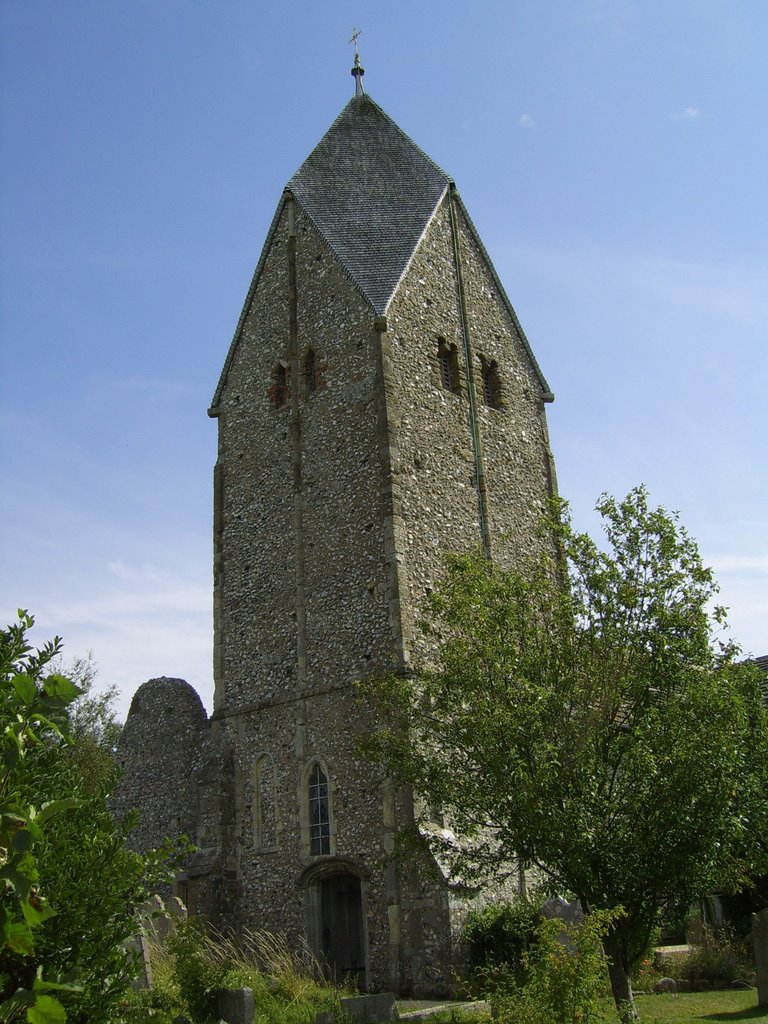
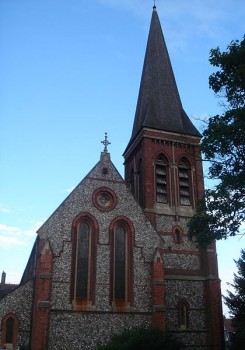
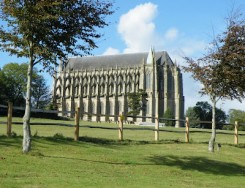
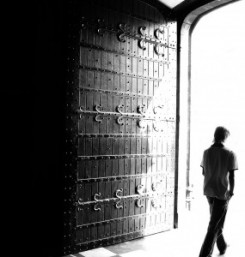
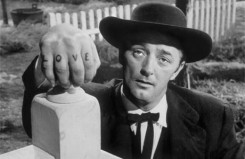
This is an honest and revealing account of the beginning of a journey, and one which you perhaps had not expected to make. There are good and important conversations to be had along the way; but for the time being, this is my reflection. In spite of the flaws, cynicism and (I suppose) abuse of the Christian faith which The Revelations describes, the Church of England is still, largely, a kind and gentle place, and one which is actually rather good at looking after people and handling religious doubt humanely. Personally, I couldn’t imagine not being part of it. Like Rose Macaulay:
http://stenya3.tumblr.com/post/16168970636/trebizond
Perhaps it’s needless to comment how beautifully woven is the story of your childhood and religion. But, it does flow as smooth as a stream after the rain.
Had similar questions about God round about the same age as you, and religion being a subject taught at my school it was as for you, part of my daily routine. Perhaps even more so. As a straight A student I wanted to graduate high school with all A’s. Only problem was that my religion teacher thought all who at the age of 17 a) smoked b) had sex c) drank alcohol d) questioned religion/existence of God, sinners. I did a) and c) mildly and d) heavily but I knew for a fact I wasn’t a sinner. So I played along. I pretended to become exactly what he wanted. And I achieved my goal I not only had a straight A in his class but he considered me an example for my peers.
My questions about God’s creation and existence (which I do not doubt for a moment) never ceased. When my publisher read my novel and decided to take me on (last summer) she asked me whether I am a deeply spiritual person. My novel is a romantic adventure. So I was taken aback by her comment. I later realised that we carry within our soul our belief in God which can be so omnipotent that it can safeguard our doubts, our questions and still prevail.
Looking forward to your next thought-provoking entry.
Humble follower,
Stella K
The best argument for some sort of faith is, for me, rather negative. I find it is unbearable to look at mankind as being the highest pinnacle of existence. Surely there has to be something above and beyond this life which inspires our longing for beauty and ideals. A reason to try and avoid brutality.
The worst aspect is the feeble and unworldly clergy who include so many obviously disturbed or merely ridiculous ministers. I think I preferred the old school career men of the cloth who just went about the business of the church without the added politics.
My family were non-conformists but I was educated by Catholics and think it gave me a wonderful start in life. I just can’t quite join any
religious stream but think the Quakers might be best, ultimately.
The divergence of beliefs and the dialogue between the Hitchens brothers is rather interesting. Still very much alive after the death of Christopher.
The Larkin or Betjeman feeling for musty sleeping churches and the sound of bells is appealing. Wonderful music and ultimately there is deep consolation in the Christian funeral service. So not sure about the bearded Christ but everything all around is good.
I bought The Revelations and will read soon.
Thanks for this thoughtful piece. It certainly makes me want to look at your novels.
I would recommend Alain de Botton’s recent book Religion for Atheists, although with a number of caveats, which I write about, from a Buddhist viewpoint, here: http://journaleast.com/religion-for-atheists/
My thought is that it is no longer possible for most of us to fill the god-shaped hole with god. Too much religious and ecclesiastical baggage. But filling it with science or materialism won’t work either, since neither have much of an ethical or transcendent dimension. Hence the bind. The ‘religion of art’ can certainly take us a long way. And I think Buddhism, which can be approached as a ‘religion for atheists’ has a lot to say to us in the disintegrating and re-emerging society we find ourselves in – but then, I would say that, as a Buddhist!
On another note, my first (non-Buddhist!) novel is coming out in the autumn. My next book will look at some very similar issues to The Revelations, so would love to have a conversation with you about that some time.
I have been interested by the de Botton book and will certainly read it, although it seems to me that it is actually the spiritual, transcendental side of faith that I am struggling with at the moment. I take the “daily spiritual practice” side of things as a given. I liked your blog on de Botton because you highlight something that, again, I thought without having read the book: that de Botton is essentially describing Buddhism and other atheistic religions which are concentrated upon states of being rather than a grand narrative of life and death. I will read the book and report back. Great to hear about your novel. I’d be very happy to read it, and to hook up for a coffee to discuss.
Thanks so much for your post, which expresses very neatly my own approach to religion. I have always rather presumed that the Quakers had it right, although I’ve never been to a service. I may try them out and will report back. It’s interesting that this debate about “militant secularism” and prayers in council meetings is coming out just now. It is one of the clear unresolved divisions in modern Britain. Do let me know how you get on with the book!
Thanks for your fabulous post and huge congrats on the novel. Do point me towards it when it’s published. It seems to me that doubt is a central part of any real belief and it’s a matter of how to maintain that state of negative capability whilst still functioning… Good luck to you and keep in touch!
What a magnificent quote. Macaulay is always rather in the shadow of the Waugh/Greene/Spark Catholic trio, but she comes from the same world (despite, I believe, being officially high-Anglican rather than a Catholic). The Towers of Trezibond is certainly a wonderful novel. I don’t mean to brand the whole Church with my book, and yes I agree that my own early experience of open-minded CofE seems about as good as it gets. Thanks for the post!
Hi Alex,
I totally relate to this blog. When you talk about the space between ‘constructive agnosticism’ and ‘tentative belief’, it reminds me of Will Self being interviewed in the New Humanist. He talks about the ‘luxury of doubt’. Eloquent as ever: http://newhumanist.org.uk/655/the-luxury-of-doubt-laurie-taylor-interviews-will-self
And, while I’m here, I can’t resist mentioning Anatheism by Richard Kearney. Like Karen Armstrong, he’s one of those writers who draws on many different sources – everyone from Derrida to Gandhi. A philosopher rather than a theologian, and yes – he does mention metaphysics once or twice. But it’s the kind of book that anyone can read. No degree in philosophy required.
Will definitely search out a copy of The Revelations. Also, I’ve just been to your reading at the University of Kent. The next novel sounds intriguing and I thought your short story was fabulous. I guess I’ll have to wait for the novel, but where can I find a copy of the story?
For those who weren’t there, it’s called: ‘I Believe in One Dog’.